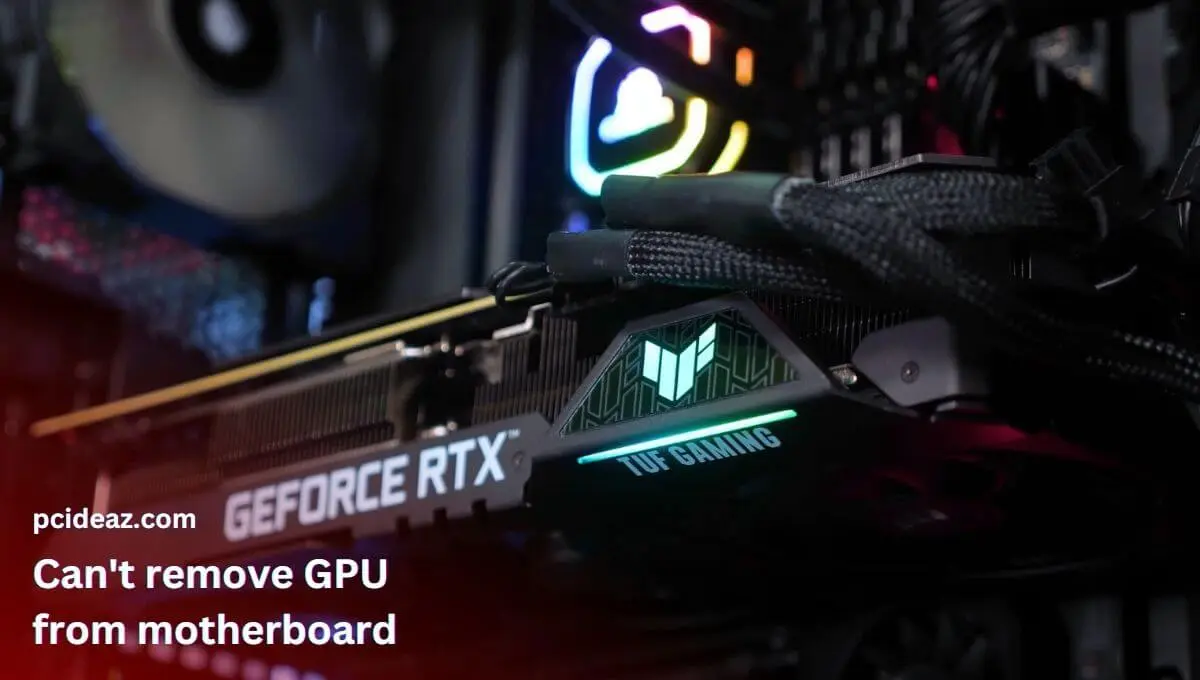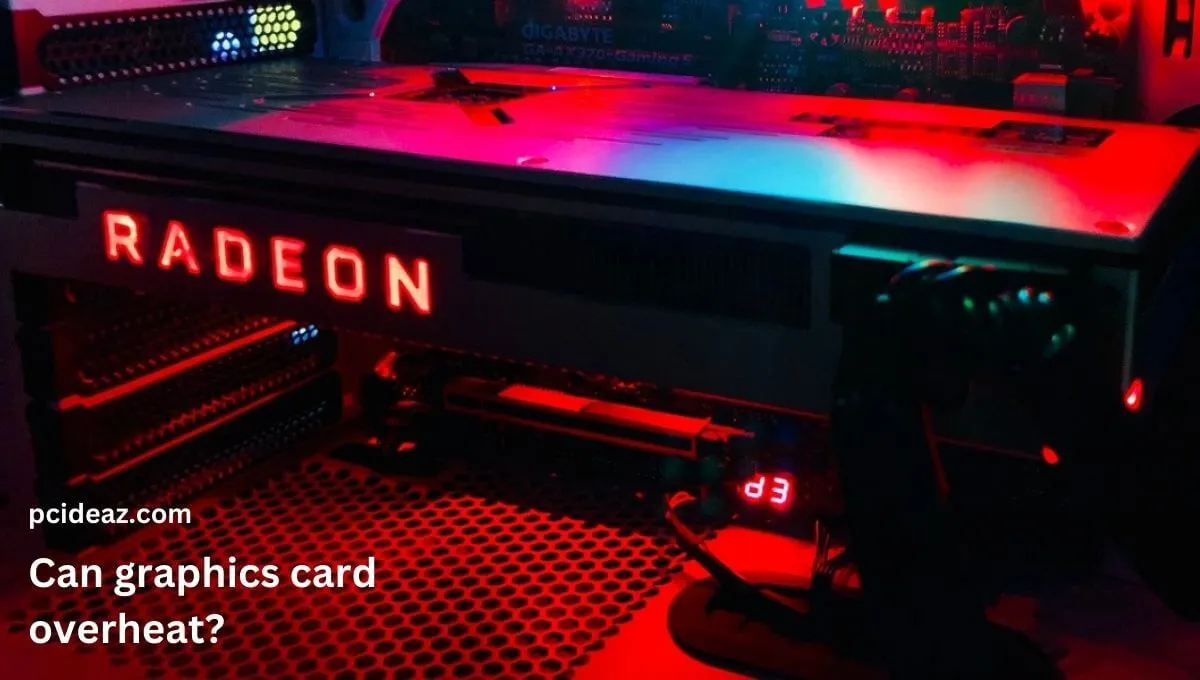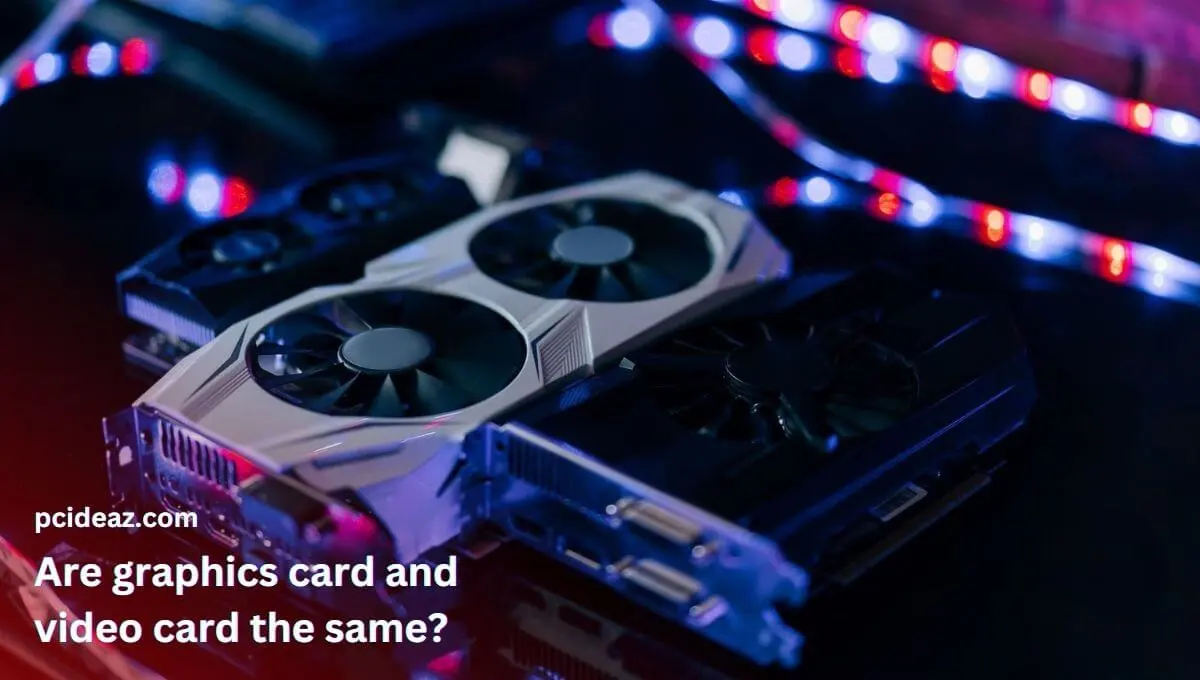Yes, a graphics card can slow down a computer if it is not functioning correctly or cannot meet the demands of the tasks it is to perform. But you must remember that the impact of a graphics card on a computer’s performance depends on the type of tasks the computer is performing. When performing basic tasks such as browsing the web or running non-3D applications, the graphics card has little to no impact on the computer’s performance, as these tasks do not require as much processing power.
However, when playing games or running 3D applications, the graphics card has to process a large amount of complex visual data, which can slow down the computer if the graphics card is not powerful enough or is not functioning optimally. If you’re facing this issue, it’s genuinely a painful issue. Therefore, we have decided to help all the users facing this issue by introducing a complete guide on this issue, its possible reasons, and several solutions. Let’s start by troubleshooting and solving the issue!
Key Takeaways
- A graphics card can slow down a computer if it is not functioning correctly or cannot meet the demands of the tasks it’s performing.
- In such a case, the graphics card stops the other components or the computer from performing at their peak and causing slowdowns.
- It’s necessary to find out the exact reason for a computer to slow down before trying different fixes or buying a new graphics card.
How can a GPU slow down a computer?
A graphics card, also known as a video card or GPU, is a computer component responsible for rendering images, videos, and animations. It processes and outputs visual information to a display like a computer monitor. Suppose your computer is high-end and combined with a heavy-duty processor, appropriate RAM, an excellent cooling system, and all good-quality components. Only the graphics card isn’t that powerful compared to the rest of the elements.
In such a case, the graphics card will not be able to keep up with the speeds and efficiencies of these elements. As a result, it will become progressively bottlenecked due to the demands of contemporary gaming and add stress to the priceless components. This is how a graphics card can slow down a computer’s performance. When a low-end graphics card is coupled with high-end hardware or a device, most often a GPU, bottlenecking of the GPU occurs
Reasons for GPU to slow down a PC
There may be several reasons why a graphics card is slowing down the performance of the Here are the reasons a graphics card may slow down a computer:
Insufficient System Resources
If the GPU shares system resources with other components, it may not have enough resources to perform optimally, leading to slowdowns. It’s crucial to close unnecessary programs and background processes to free up resources for the GPU to prevent this.
Driver Issues
A GPU running on outdated or incorrect drivers can cause conflicts with the operating system and other hardware components. This can result in slowdowns, crashes, and other stability issues. Updating to the latest drivers can often resolve these issues by providing optimizations and bug fixes. It’s essential to regularly check for driver updates to ensure the GPU is running optimally.
Outdated Hardware
An older GPU may be unable to keep up with the demands of newer games and applications, leading to slowdowns. Upgrading to a newer GPU can often resolve this issue by providing increased performance and compatibility with newer games and applications.
Overheating
GPUs generate a lot of heat while processing complex visual data. If the cooling system is inadequate, the GPU can overheat and throttle its performance to prevent damage. Overheating can cause slowdowns and instability issues. It’s essential to ensure proper ventilation and airflow and regularly clean the GPU and its cooling system of dust buildup to prevent overheating.
Power Supply Constraints
A GPU requires a significant amount of power to function optimally. If the power supply unit is not powerful enough to support the GPU, it may not run at its full potential, causing slowdowns. It’s essential to choose a power supply unit that provides enough power to support the GPU and other components in the system.
Dust Buildup
Dust buildup on the GPU and its cooling system can reduce airflow and cause overheating. This can cause the GPU to throttle its performance, leading to slowdowns or shutdowns. To prevent this, it’s essential to regularly clean the GPU and its cooling system to ensure proper airflow.
Viruses or Malware
Numerous issues with your PC might be brought on by a virus or malware software. One of them is a slowdown PC. Use an antivirus or malware-scanning application to ensure your computer is not contaminated before using it for business.
The Windows Defender tool offers many of the same protections to home users. A malware prevention tool can delete or quarantine harmful programs or data from your computer. When the infection is eliminated, your computer should operate normally.
Background Processes
Programs on your computer can be operating in the background without your knowledge. Too many background processes can consume system resources and slow down the GPU. For instance, antivirus software typically operates in the background. There may be a good number of others that you can skip.
It’s crucial to close unnecessary programs and background processes to free up resources for the GPU to prevent this. Using the Task Manager tool, you may see all the apps now executing on your computer. To access the Task Manager, press Alt + Ctrl + Delete.
Fixes for a slow computer
You can try the following fixes to resolve the issue of a graphics card slowing down your computer:
Install new drivers updating
The driver is a piece of software that manages different game-related operations. It provides instructions on interacting with the gaming program to other hardware. The driver and the application are the two fundamental components of this connection. The program talks to your computer’s graphics card, while the driver talks to the operating system and increases the speed of your PC.
Clean your PC
Dust may harm your computer, including overheating and poor performance. Another option for removing dust is to use an outdated, reasonably priced vacuum cleaner. This option offers excellent airflow at a reasonable price and enough power to affect how quickly your graphics card executes instructions.
Update graphics card
One of the first steps you should take to improve the performance of your graphics card is to see whether it has trouble maintaining a constant frame rate. If it isn’t, you could have an old one. If your PC doesn’t already have a newer or better graphics card, check to see if it does and upgrade it as soon as possible. Additionally, your graphics card’s performance will improve if you discover a means to raise the frame rate.
Conclusion
A graphics card (GPU) can slow down a computer if it is not functioning correctly or can’t meet the demands of its tasks. The performance of the GPU can be impacted by insufficient system resources, outdated hardware, overheating, power supply constraints, dust buildup, viruses, malware, and background processes.
To resolve this issue, you can try installing new drivers, cleaning your computer, checking for malware, closing unnecessary background processes, and upgrading the GPU or power supply unit.
Frequently Asked Questions
What is the use of graphics card in a computer?
An extension card for your PC called a graphics card is in charge of rendering images for the display. High-end GPUs are utilized for cryptocurrency mining, ray tracing, graphics creation, and gaming. The machine will slow down if a graphics card cannot manage the computer’s output.
Since the early 1990s, graphics cards have been utilized in computers without any problems or negative impacts. Simply put, a graphics card is a piece of hardware that converts what you see on the screen into a visual representation.
What does a graphics card do?
The graphics cards are in charge of processing 3D graphics, video games, and visual presentations on monitors. To boost your computer’s performance, upgrading your graphics card is sometimes essential. Although other elements like the CPU, storage, and RAM can also affect performance, the graphics card is closely related to how you feel when playing games.
Why is my computer slowing down?
Here are a few reasons why your computer is slowing down:
- A CPU bottleneck: The phrase “bottlenecking” is typically associated with video games. But other processes may also encounter a CPU bottleneck. Generally, upgrading from an old or subpar CPU to a newer model helps. Uninstall the software from the computer if your CPU is incapable of executing it.
- The Hard Drive Is Old: A slow computer is one of the telltale signs of an aged hard disc. Usually, hard discs endure three to five years. A new hard drive won’t set you back much, but adding additional RAM may be pricey.
- Insufficient RAM Memory: Your computer’s “volatile” temporary memory is called RAM. In contrast to stored memory, RAM does not function while the computer is off. Your computer may noticeably lag if you need more RAM. A 64-bit system requires a minimum of 4 GB and, ideally, 8 GB of RAM.
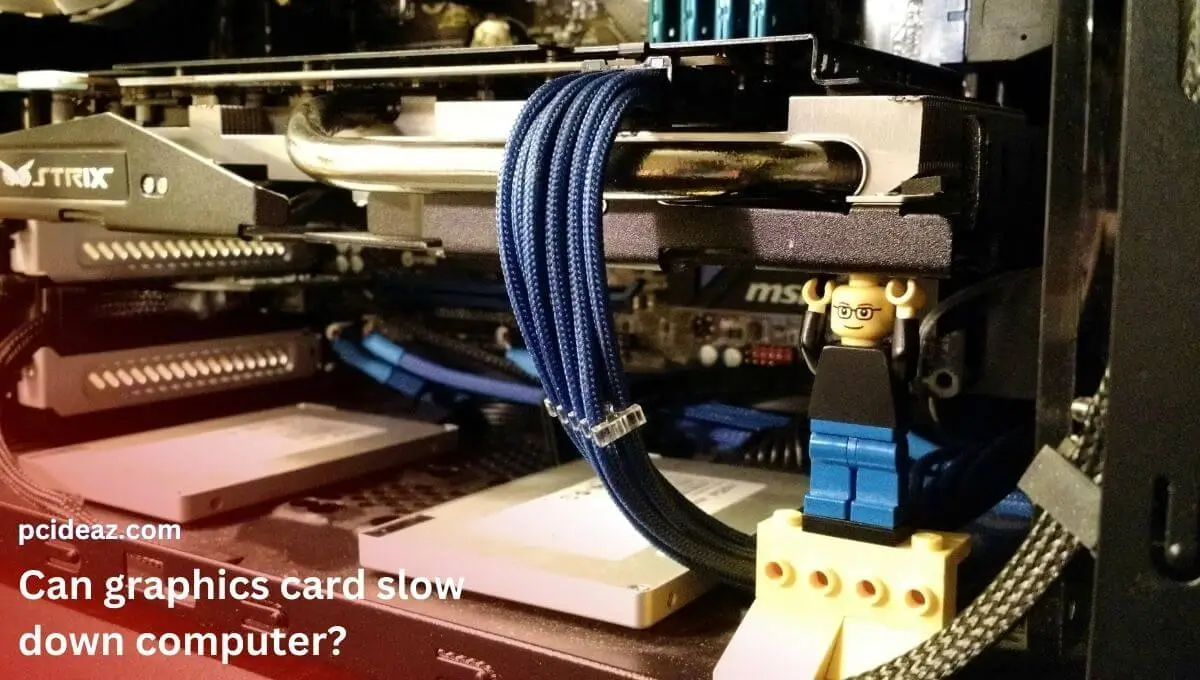

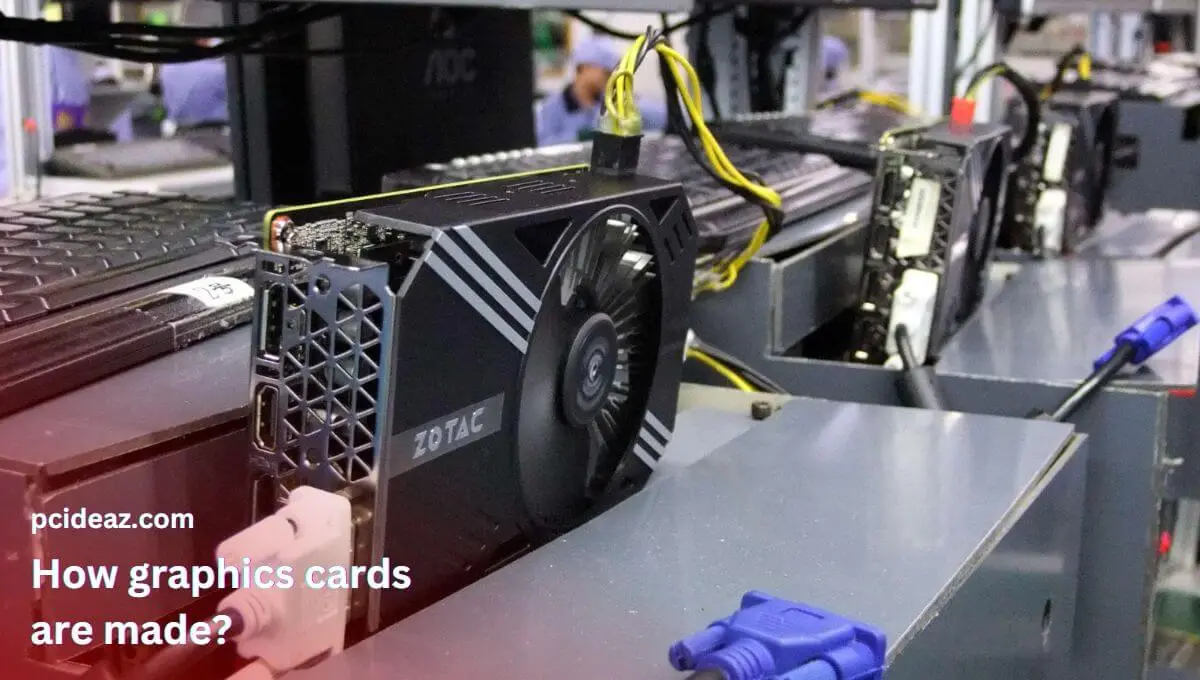
![Where graphics card is located? [On PC & Laptop]](https://d33wubrfki0l68.cloudfront.net/54961c2d0937af66ba80f08e39e3017422fa3946/32e7b/uploads/where-graphics-card-is-located.webp)
